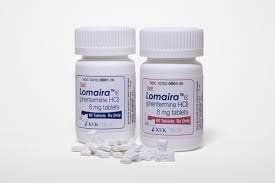This is an automatically translated article.
Posted by Master, Doctor Mai Vien Phuong - Department of Examination & Internal Medicine - Vinmec Central Park International General Hospital
The keto diet (Ketogenic) is a diet low in carbohydrates (carbs) and high in good fats. The Keto menu helps the body burn more energy without the need for strict diets.
Early research shows that this high-fat, very low-carbohydrate diet may be beneficial for some health conditions. Although some evidence is from case studies and animal studies, results from controlled human studies are also promising.
The keto diet (Ketogenic) is a diet low in carbohydrates (carbs) and high in good fats. The Keto menu helps the body burn more energy without the need for strict diets.
When you regularly cut carbs in your diet, your body will enter a state of "Ketosis". At this time, the body increases energy burning. At the same time, the pancreas will also convert fats into ketones, providing energy for the brain. The Ketogenic diet can significantly lower blood sugar and insulin levels. This can bring a lot of benefits to your health.
Keto menu with many beneficial fats, low in carbohydrates can lower blood sugar and insulin levels, affect the body's metabolism and limit fat storage.
Here are 15 health conditions that can benefit from the ketogenic diet.
1. Epilepsy
Epilepsy is a disease that causes seizures due to an overactive brain. Antiepileptic drugs are effective for some people with epilepsy. However, others do not respond to medications or cannot tolerate their side effects.Of all the conditions that may benefit from the ketogenic diet, epilepsy has by far the most supportive evidence. In fact, there are several dozen studies on the subject.
Research shows that seizures usually improve in about 50% of epilepsy patients following the classic ketogenic diet. This is also known as the 4:1 ketogenic diet because it provides 4 times more fat than protein and carbohydrates combined.
The Modified Atkins Diet (MAD) is based on a fat to protein ratio and is significantly less restrictive. It has been shown to be equally effective in controlling seizures in most adults and children over 2 years of age.

2. Metabolic syndrome
Metabolic syndrome, sometimes called prediabetes, is characterized by insulin resistance. You can be diagnosed with metabolic syndrome if you meet any of the following 3 criteria:
Large waist circumference: 35 inches (89 cm) or more in women and 40 inches (102 cm) or more in men gender; Increased triglycerides: 150 mg/dl (1.7 mmol/L) or higher; Low HDL cholesterol: Less than 40 mg/dL (1.04 mmol/L) in men and less than 50 mg/dL (1.3 mmol/L) in women; High blood pressure: 130/85 mm Hg or higher; Fasting hyperglycemia: 100 mg/dL (5.6 mmol/L) or higher. People with metabolic syndrome are at increased risk for diabetes, heart disease, and other serious disorders associated with insulin resistance.
Fortunately, following a ketogenic diet can improve many features of metabolic syndrome. Improvements may include better cholesterol values, as well as reduced blood sugar and blood pressure.
3. Glycogen storage disease
People with glycogen storage disease (GSD) lack one of the enzymes involved in storing glucose (blood sugar) as glycogen or breaking down glycogen into glucose. There are several types of GSD, each based on the type of enzyme that is missing.
Usually, this disease is diagnosed in childhood. Symptoms vary depending on the type of GSD, and can include poor growth, fatigue, low blood sugar, muscle cramps, and an enlarged liver.
GSD patients are often advised to consume carbohydrate-rich foods regularly so that glucose is always available in the body.
However, early research suggests that the ketogenic diet may be beneficial for people with some forms of GSD.

4. Polycystic Ovarian Syndrome (PCOS)
Polycystic ovary syndrome (PCOS) is a disease characterized by hormonal dysfunction that often leads to menstrual irregularities and infertility.
One of its hallmarks is insulin resistance, and many women with PCOS are obese and find it difficult to lose weight. Women with PCOS are also at risk for type 2 diabetes.
People who meet the criteria for metabolic syndrome tend to have symptoms that affect their appearance. Possible effects include increased facial hair, acne, and other signs of masculinity associated with higher testosterone levels.
5. Diabetes
People with diabetes often experience dramatic reductions in blood sugar when following the ketogenic diet. This is true for both type 1 and type 2 diabetes.
Indeed, dozens of controlled studies show that very low-carbohydrate diets help control blood sugar and may also provide health benefits other healthy.
6. Certain cancers
Cancer is one of the leading causes of death worldwide. In recent years, scientific research has suggested that the ketogenic diet may help some types of cancer when used alongside traditional treatments such as chemotherapy, radiation, and surgery. .
Many researchers note that high blood sugar, obesity, and type 2 diabetes are linked to breast cancer and other cancers. They suggest that restricting carbohydrates to lower blood sugar and insulin levels may help prevent tumor growth.
Studies in mice show that the ketogenic diet can reduce the progression of certain types of cancer, including cancer that has spread to other parts of the body.
However, some experts believe that the ketogenic diet may be especially beneficial for brain cancer.
Although it may not have a significant impact on disease progression in advanced and terminal cancers, the ketogenic diet has been shown to be safe in these patients and potentially improve quality of life.
Randomized clinical studies need to look at how the ketogenic diet affects cancer patients. Some are currently underway or in the hiring process.
Animal and human studies suggest that the ketogenic diet may be beneficial for people with certain cancers, when combined with other therapies.

7. Autism
Autism spectrum disorder (ASD) refers to a condition characterized by problems with communication, social interaction, and in some cases, repetitive behaviors. Usually diagnosed in childhood, it is treated with speech therapy and other therapies.
Early research in young rats and mice suggests that a ketogenic diet may be helpful for improving ASD behavioral patterns.
Autism shares some features with epilepsy, and many people with autism have seizures that involve over-excitation of brain cells.
Studies show that a ketogenic diet reduces brain cell overstimulation in mouse models of autism. Furthermore, they appear to favor behavior regardless of changes in seizure activity.
A pilot study of 30 children with autism found that 18 had some improvement in symptoms after following a cyclically ketogenic diet for 6 months.
8. Parkinson's disease
Parkinson's disease (PD) is a nervous system disorder characterized by low levels of the signaling molecule dopamine. A lack of dopamine causes a number of symptoms, including tremors, impaired posture, stiffness, and difficulty walking and writing.
Due to the protective effects of the ketogenic diet on the brain and nervous system, it is being explored as a potential complementary therapy for PD.
9. Obesity
Many studies show that a ketogenic, very low-carbohydrate diet is often more effective for weight loss than a calorie-restricted or low-fat diet. Furthermore, they often provide other health improvements as well.
In a 24-week study, men following a ketogenic diet lost twice as much fat as men on a low-fat diet.
In addition, the triglycerides of the ketogenic group decreased significantly, and their HDL (“good”) cholesterol increased. The low-fat group had lower triglycerides and lower HDL cholesterol.
Ketogenic diets' ability to reduce hunger is one of the reasons why they are so effective for weight loss.
10. GLUT1 . Deficiency Syndrome
Glucose transporter deficiency syndrome 1 (GLUT1), a rare genetic disorder, involves a deficiency of a particular protein that helps move blood sugar into the brain.
Symptoms usually begin soon after birth and include growth retardation, motor difficulties, and sometimes seizures.
Unlike glucose, ketones do not require this protein to travel from the blood to the brain. Thus, the ketogenic diet could provide an alternative fuel source that these children's brains can effectively use.
11. Traumatic brain injury
Traumatic brain injury (TBI) most commonly occurs as a result of a blow to the head, a car accident, or a fall where the head hits the ground. It can have devastating effects on physical function, memory, and personality. Unlike cells in most other organs, injured brain cells often recover little, if any, at all.
Because the body's ability to use sugar is impaired after a head injury, some researchers believe that a ketogenic diet may be beneficial for people with TBI.

12. Multiple sclerosis
Multiple sclerosis (MS) damages the protective coating of nerves, leading to communication problems between the brain and body. Symptoms include numbness and problems with balance, movement, vision, and memory.
A study of MS in a rat model showed that a ketogenic diet suppresses inflammatory markers. Reduced inflammation leads to improved memory, learning, and physical function.
13. Non-alcoholic fatty liver disease
Nonalcoholic fatty liver disease (NAFLD) is the most common liver disease in the Western world. It is strongly associated with type 2 diabetes, metabolic syndrome, and obesity, and there is evidence that NAFLD also improves on a very low-carbohydrate ketogenic diet.
14. Alzheimer's Disease
Alzheimer's disease is a progressive form of dementia, characterized by plaques and tangles in the brain that impair memory. Interestingly, Alzheimer's disease seems to share features of both epilepsy and type 2 diabetes: seizures, the brain's inability to properly use glucose, and inflammation associated with insulin resistance.
Animal studies show that the ketogenic diet improves balance and coordination but has no effect on the amyloid plaque that is a hallmark of the disease. However, addition of ketone esters seems to reduce amyloid plaque.
15. Migraine headache
Migraines are often associated with severe pain, sensitivity to light, and nausea. Some studies show that migraine symptoms often improve in people following a ketogenic diet.
An observational study reported a reduction in migraine frequency and pain medication use in people following a ketogenic diet for one month.
In summary, the ketogenic diet is being considered for use in a number of disorders due to their beneficial effects on metabolic and nervous system health. However, many of these impressive results come from case studies and need to be confirmed through higher-quality research, including randomized controlled trials. The ketogenic diet should not be considered a cure for any disease or disorder.
Please dial HOTLINE for more information or register for an appointment HERE. Download MyVinmec app to make appointments faster and to manage your bookings easily.














